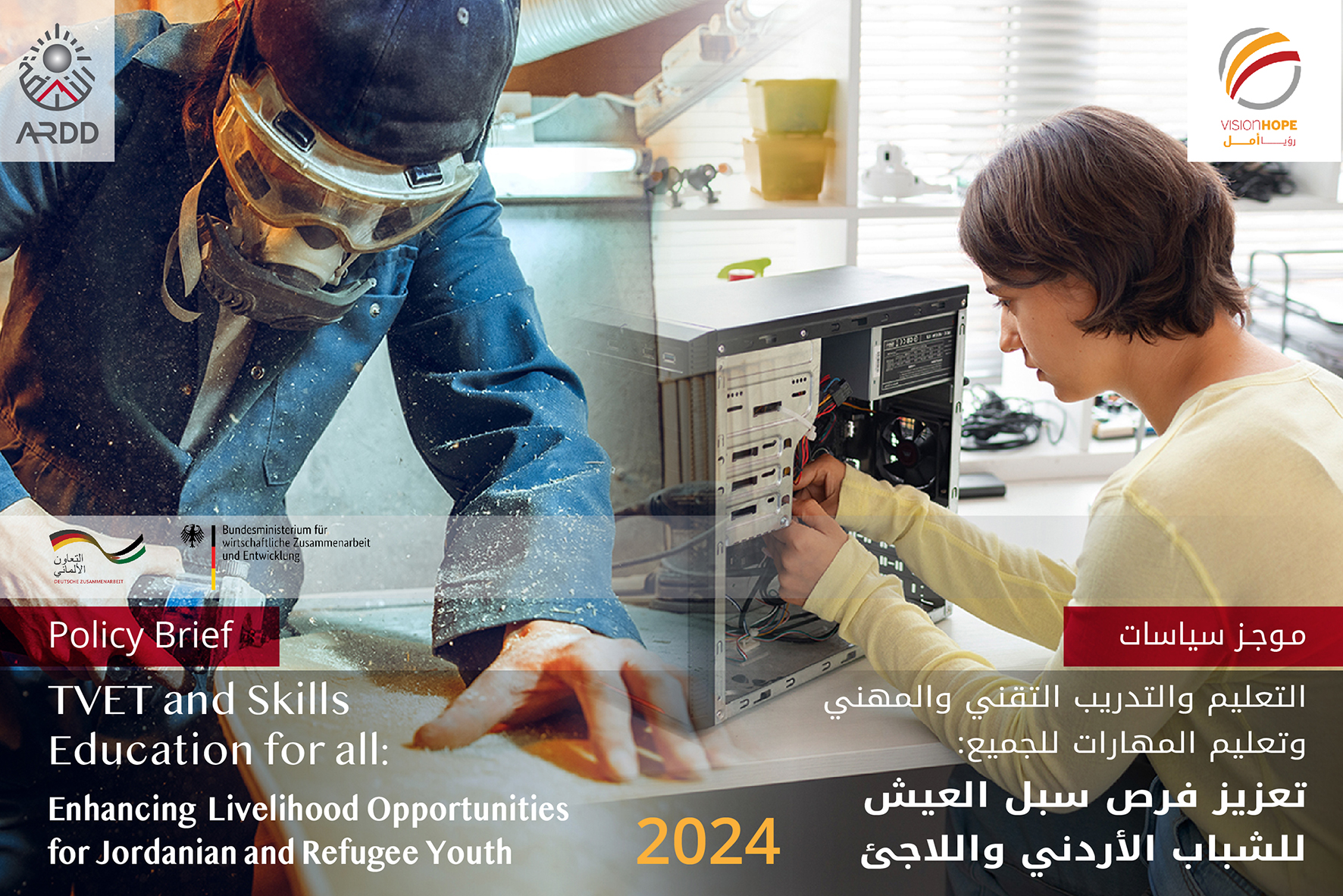According to the United Nations High Commissioner for Refugees (UNHCR), Jordan is home to 723,886 registered refugees. While Syrians constitute the bulk of the refugee population, other nationalities have sought and found refuge in Jordan, such as Yemenis, Somalis, and Sudanese. Despite UNHCR’s advocacy of the “One Refugee Approach,” the needs of these particular refugee communities have been significantly overlooked by the international aid community and Jordanian authorities, exacerbating their vulnerabilities.
As stressed in several national strategies, the Government of Jordan has identified TVET and Skills Education as a key economic and educational priority to address the current skills mismatch among youth in Jordan and increase the efficiency and productivity of its workforce, positively contributing to national economic and human development.3 Furthermore, TVET and Skills Education have been internationally, regionally, and nationally recognized as an effective and efficient educational pathway to foster refugees’ livelihood opportunities.
This policy brief sheds light on the challenges and opportunities of the Technical and Vocational Education and Training (TVET) sector in Jordan by adopting a sectoral and refugee-specific approach. TVET and Skills Education in Jordan has been identified as a development priority by the Government of Jordan and the donor community, as not only a useful tool to achieve a skilled and competitive Jordanian workforce, but also an educational pathway to enhance protection and livelihood opportunities for refugee communities, including Yemenis, Somalis, and Sudanese. Nevertheless, the poor social image of TVET among Jordanians, inefficient public financial management strategies, or insufficient coordination between the involved stakeholders are some of the challenges the TVET sector in Jordan is currently suffering from.
This policy brief draws upon the findings of the study titled “Strengthening Self-Reliance: TVET and Skills Education for Youth in Jordan,” conducted by the Social Protection and Economic Development Research Team at the Renaissance Strategic Center – Arab Renaissance for Democracy and Development. This research was carried out as part of the “Investing in the Future: Improved educational, social and economic integration of Somali, Sudanese and Yemeni minorities in Jordan “ project, implemented in partnership with Vision Hope International and the generous financial support of the Ministry for Economic Cooperation and Development of the Federal Republic of Germany.



